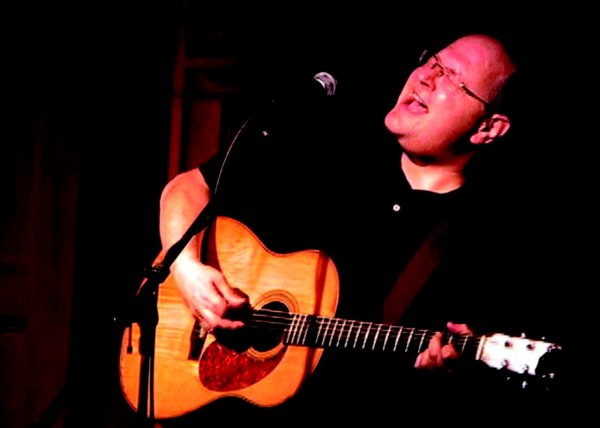
Pursuing a vocation in the creative arts often requires living in – or, at least, close to – a specific show-biz capital. For example, it would be nigh on impossible for a Des Moines-based dancer to find success as a Broadway gypsy – no matter how gifted she is – without hoofing it to The Big Apple and hitting the pavement of Manhattan. Any aspiring thespian intent on cracking into television and/or movies would be well advised to bat on out to Hollywood ASAP and get a gig barking out today’s specials.
Videos by American Songwriter
The same rule has been darn near ironclad on Music Row. In order to gain admission into the exclusive, secret society of country hit-makers, your presence ’round town has traditionally been requisite numero-uno. Southerners don’t take kindly to outsiders dropping in to take their money and run. Give off a whiff-a carpetbagger and you’re liable to find yourself on the porch with a slammed door echoing in your ears, thinking, “Wait a minute. They didn’t say, ‘Ya’all come back.’”
Prior to opening a pair of shows for Crystal Gayle in 1985, New York-born, Bay Area folkie Steve Seskin had never considered tunesmithing in Nashville, nor did he consider himself a country music fan. He’d always been, as he now freely admits, a “free-spirit writer” and, in fact, had yet to collaborate on a single song. However, Gayle and her husband/manager Bill Gatzimos recognized a certain sensibility in Seskin’s tunes and strongly encouraged him to put Tennessee at the top of his travel plans. Had Seskin not received this advice – and heeded it – the world would have been deprived of some pretty amazing songs.
Seskin soon touched down in Music City with one phone number in his pocket – that of Merlin Littlefield. Hearing enough raw potential in Seskin’s writing, the ASCAP writer-relations exec made some calls on Seskin’s behalf. As so often happens when a promising newbie begins making the rounds on the Row, Seskin was quickly swept up into a weeklong whirlwind of exhilarating activity. Feeling welcomed and encouraged, he booked a return trip the following month.
Seskin didn’t hesitate. He didn’t look for excuses why he couldn’t afford the time and/or expense. His willingness to seize an unforeseen opportunity, one for which he’d been unwittingly preparing for years, resulted in a start-up publishing deal with New Clarion Music. No draw; but the company paid for demos, set him up with co-writes, and plugger Daniel Hill ran with the tunes.
Co-writing – by appointment, instead of whenever the muse jingled, with credentialed tunesmiths – proved to be an on-the-job education for the Californian. But writer beware! When you first set out to mimic the pros, the intuition that made you stand out in the first place tends to get gagged and thrown in the back seat. Writing for the marketplace is a balancing act. Mastering the accepted vernacular and structure of the genre is essential. But then, if you’re smart and self-aware – and frustrated enough by the mediocre, carbon-copy songs you’ve been penning and the lukewarm responses they elicit – you begin applying what you’ve learned to what you really care about, instead of dwelling on what you think the industry will embrace. “The craft of songwriting without the heart of songwriting is worthless,” Seskin correctly concluded, “but a heartfelt song well-crafted is pretty desirable.”
After three years of regular, bi-monthly SFO-BNA commutes, Seskin had about 150 uncut songs to show for it. Serendipity finally arrived on a Sunday night in 1988 at the Bluebird Cafe. Seskin, a publishing orphan now for eight months, was one of a dozen or so performers scheduled to render a pair of hand-crafted tunes. That evening’s featured writer, Bob DePiro, was impressed enough to inquire if Seskin might be interested in a new, boutique publishing venture he was forming with Jon Scott Sherrill. Working under single-song agreements, Seskin scored a cut with supergroup Alabama. That’s what motivated Little Big Town Music’s Woody Bomar to pop the question: “How would you like to be part of the family?”
Ironically, Seskin’s initial single release was not co-written in Nashville with a Music Row stalwart but in California with rocker Andre Pessis. 1990’s “Wrong” became Seskin’s first top-5 – and Waylon Jennings’ last. Since then, Seskin has revisited the top of the charts with Tim McGraw (“Grown Men Don’t Cry,”) Kenny Chesney (“All I Need To Know,”) Colin Raye (“I Think About You,”) Mark Wills (NSAI and Music Row Magazine Song of the Year, “Don’t Laugh At Me,”) and Ricochet (“Daddy’s Money,”) among others.
For nearly three decades, Seskin has continued making five-to-eight, week-to-12-day jaunts per year, each booked solid with two-a-day writing sessions. “What drew me to Nashville,” Seskin recalls, “was not the business, but the community.” A paradoxical statement from a cat who’s done a heck-of-a-lotta business in Music City, in spite of never having moved into the community. He maintains a San Francisco zip code to this day. “With a great publisher, I never really left,” he surmises, “because my songs never left.”
As Michael Laskow of TAXI said of Seskin, “He is a man who has truly proved that you can grow up in New York, live in San Francisco, and still become a major player in Nashville.”








Leave a Reply
Only members can comment. Become a member. Already a member? Log in.